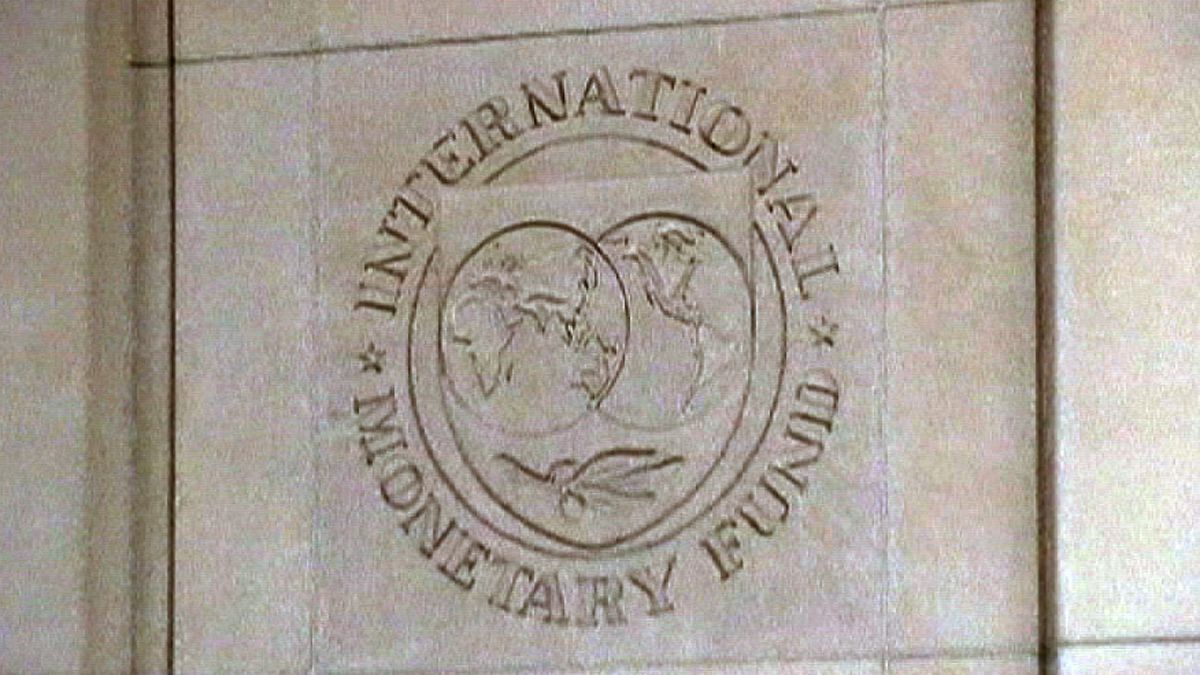The International Monetary Fund says the eurozone’s short term growth prospects have improved a little bit, as IMF head Christine Lagarde praised Italy’s reform efforts and said she sees progress in Spain.
In its latest World Economic Outlook, the Fund’s forecast for the region was an improvement on its prediction back in January.
The eurozone economy should shrink by 0.3 percent – better than the 0.5 percent fall previously predicted – before growing by 0.9 percent next year.
The IMF lifted its growth forecast for the US and Japan’s outlook is also slightly improved.
The global economy is on track to expand this year by 3.5 percent and by 4.1 percent in 2013, up slightly from 3.3 percent and 3.9 percent GDP output respectively that the IMF had forecast in January, when market concern was rampant that Greece could default and Italy and Spain were facing budget crises.
 However, the forecasts are very cautious.
However, the forecasts are very cautious.
The IMF sees growth worldwide slowly improving as the recovery in the United States gains traction and dangers from Europe recede, but adds that risks remain elevated and the gains are very fragile.
It warns that despite the improvement, the fate of the US remains deeply intertwined with that of the eurozone.
IMF chief economist Olivier Blanchard says the forecast has been shaped by the fact that “the world economy is in an uneasy calm… and there is a feeling that things could get very bad again.”
He added: “Even without another European crisis, most advanced economies still face major brakes on growth. And the risk of another crisis is still very much present and could well affect both advanced and emerging economies.”
News+ interview
For more insight, euronews spoke to Jörg Decressin, Division Chief of the IMF’s European Department.
Stefan Grobe, euronews: “We have seen calm return to markets, as eurozone governments have taken more steps on budget tightening and fiscal reforms. Is the worst of the euro crisis behind us or could the situation in Spain and Italy escalate the crisis again?”
Jörg Decressin: “The risks continue to remain quite elevated. In our World Economic Outlook we actually have a downside scenario that explains how a reintensification of risks would affect the euro area as well as the rest of the world. And it shows that, if there was a re-intensification of the crisis, many countries would suffer.”
euronews: “There is the risk of strong spillover effects to the rest of Europe and beyond. What is the narrative here? Is the eurozone dragging the global economy down?”
*Jörg Decressin:* “There are several channels through which the euro area crisis are spilling over to the rest of the world. First, many European governments are implementing strong fiscal consolidation plans. These are necessary, but they are also reducing growth in the short term and therefore are reducing imports by the euro area from the rest of the world, and thereby affecting growth elsewhere. Second, banks in Europe are also trying to rebuild capital and cut back on credit and other assets. And so they are selling assets elsewhere in the world, they are reducing credit growth elsewhere in the world, in order to improve the quality of their long-term portfolios. And this is also weighing on growth in rest the world.”
euronews: “Give us a progress report on Greece and Portugal. Do the joint EU/IMF programmes work? What is the impact on the real economy in these countries and on the growth prospects?”
Jörg Decressin: The programmes work. The situation is still quite challenging in Greece. In Portugal the programme is moving ahead quite smoothly. The successes of the programmes can be seen in various indicators. First, you are seeing that the fiscal deficits of these countries are coming down quite appreciably, second you are seeing that inflation in these countries is coming down quite apppreciably and third, you are seeing that their current account deficits are coming down quite appreciably.“
euronews: “Much of the burden of supporting growth falls on monetary policy. Should the ECB inject more funds into the financial system to address banks’ funding and liquidity problems – even if the Germans are against it?”
Jörg Decressin: “The ECB’s policies have been absolutely decisive. Particularly the so-called Long-Term Refinancing Operations that they have deployed. We believe that the ECB needs to stand ready to deploy such operations again, if and when needed. They also need to stand ready to intervene in bond markets with a view to maintaining orderly conditions and thereby facilitate the pass through of the monetary policy to the real economy.”
